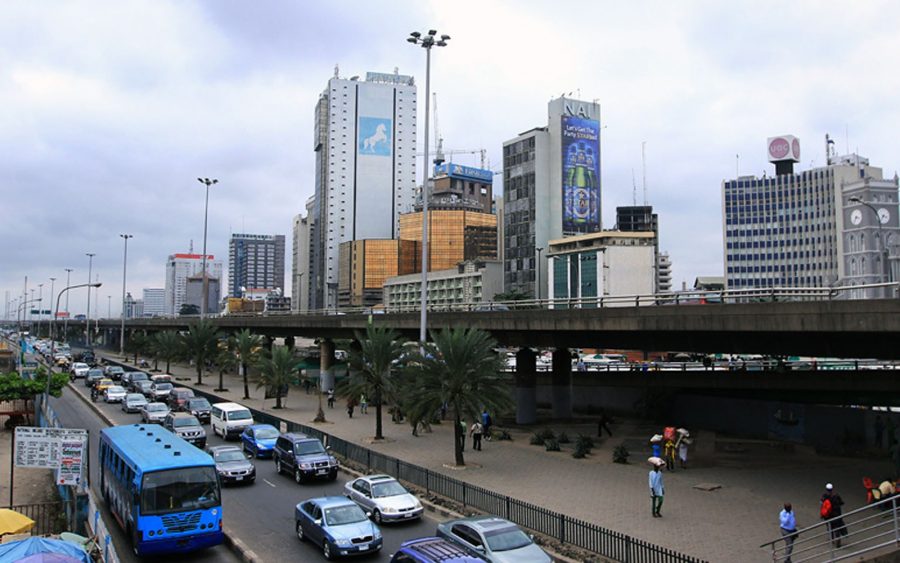Nigeria’s trade position worsened in the last quarter of 2020 as the merchandise trade deficit widened from NGN2.39 trillion in the third quarter to NGN2.73 trillion in the last quarter of 2020Q4-20.

This puts the 2020 Financial Year total trade deficit at NGN7.38 trillion, the country’s worst trade position since at least 2008. Analysts describe the trade deficit in 2020 Financial Year as equal to total imports in 2014FY (NGN7.37 trillion).
Meanwhile, total exports declined significantly by 33.0% in Q4-20 (Q3-20: -43.4% y/y), given lower oil prices amid the decline in oil production.
On the other hand, imports grew by 10.8% y/y (Q3-20: +38.1% y/y) due to the huge demand for chemical products (+141.4% y/y vs Q3-20: +84.8% y/y), manufactured goods (+45.3% y/y vs Q3-20: +52.0% y/y) and food items (+114.2% y/y vs Q3-20: +116.5% y/y).
Economy watchers expect a marginal pickup in imports as the demand for chemical and food items which contributed to the spike in the last quarter of 2020 moderates. However, they say exports are expected to decline at a slower pace, given lower crude oil exports amidst higher oil prices. Overall, the trade balance is expected to remain negative in the first quarter of 2021 Q1-21.
Global markets
Global stocks edged higher as investors flocked into cyclical and heavyweight tech stocks, following a short reprieve in rising U.S Treasury yields. Later in the week, investor sentiment was further strengthened by President Biden’s assent to the USD1.9trillion economic relief bill. In the U.S, the DJIA (+3.1%) and S&P (+2.5%) rallied on the back of lower-than-expected inflation data, which eased concerns about an impending end to the era of ultra-loose monetary policy and reactions to the stimulus package. In Europe, the STOXX Europe (+3.3%) and FTSE 100 (+1.2%) were buoyed by dovish comments made by the ECB President, Lagarde, which helped soothe concerns about higher borrowing rates that will hamper economic recovery. In Asia, Wall Street’s rally boosted the Nikkei 225 (+3.0%). In comparison, SSE (-1.4%) extended losses from the prior week as investors reacted to higher Covid-19 cases that affected a substantial number of financial-market executives. Emerging markets (MSCI EM: +2.5%) stocks also mirrored the upbeat mood across global equities consequent on the gains in India (+0.9%), while Frontier (MSCI FM: +0.1%) market stocks posted marginal gains, driven by increases in Kenya (+0.7%).
Global economy
The uptick in gasoline prices has continued to exert upward pressures on consumer prices in the United States (U.S). According to the U.S. Bureau of Labour Statistics, headline inflation increased by 0.4% m/m in February (January: +0.3% m/m). The uptick was primarily due to a 6.4% m/m increase in gasoline prices (January: +7.4% m/m), which accounted for more than half of the seasonally adjusted increase in the consumer price index. Food inflation also rose by 0.2% m/m (January: 0.1% m/m), with the index for food at home and food away from home rising. On a year-on-year basis, we highlight that the consumer price index rose by 1.7% y/y (January: +1.4% y/y) – the highest rate since February 2020 (+2.3% y/y). Over the short term, we expect further build-up in inflationary pressures due to the (1) low base effect in the prior year, (2) reopening of the economy as more citizens get vaccinated, and (3) impact of the recently signed USD1.9trn stimulus package.
After a careful assessment of the (1) second wave of the COVID-19 pandemic and (2) slow vaccine rollout on the Eurozone economy, the European Central Bank (ECB) elected to keep policy rates steady to continue to lay the foundation for a substantial economic recovery. Pertinently, the ECB kept the interest rate on the main financing operations unchanged at 0.00%. The bank also affirmed to continue to conduct net asset purchases under the Pandemic Emergency Purchase Programme (PEPP) with a total envelope of EUR1.85 trillion until at least the end of March 2022. Meanwhile, the Committee acknowledged that net asset purchases’ pace was lower in the first months of the year and expects purchases to be significantly higher over the next quarter. For us, the decision to increase the pace of net asset purchases cements the Committee’s stance to tame borrowing costs to support the quick recovery of the bloc’s economy.















